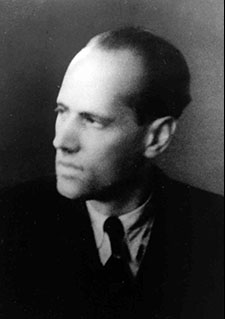Friends of the Kreisau Circle
The Kreisau Circle, which started forming around Helmuth James von Moltke and Peter Yorck von Wartenburg in early 1940, united the particular capabilities of intellectuals and exceptional figures.
Among them were members of old Prussian aristocratic families (Moltke, Yorck, Adam von Trott, Carl Dietrich von Trotha, Horst von Einsiedel, Hans-Bernd von Haeften and Heinz-Otto von der Gablentz), trade unionists and Social Democrats (Wilhelm Leuschner, Hermann Maass, Adolf Reichwein, Carlo Mierendorff, Theodor Haubach and Julius Leber), Protestant theologians (Harald Poelchau, Eugen Gerstenmaier and the “lay theologian” Theodor Steltzer), Catholic laity (Hans Lukaschek, Hans Peters and Paulus van Husen) and three Jesuits, Augustin Rösch, Lothar König and Alfred Delp.
These men from different political, religious and ideological “camps” developed a model of the state and society as an alternative to the Nazi system.
Their collective goal was a “new Germany”, a free and social Germany that respected basic human rights. They rejected the authoritarian state and focused on the individual in all of their deliberations. The members of the Kreisau Circle wanted a social order that empowered individuals to exercise self-determination and assume (political) responsibility. They rejected the national power state and, in terms of foreign policy, strove for pan-European integration.

